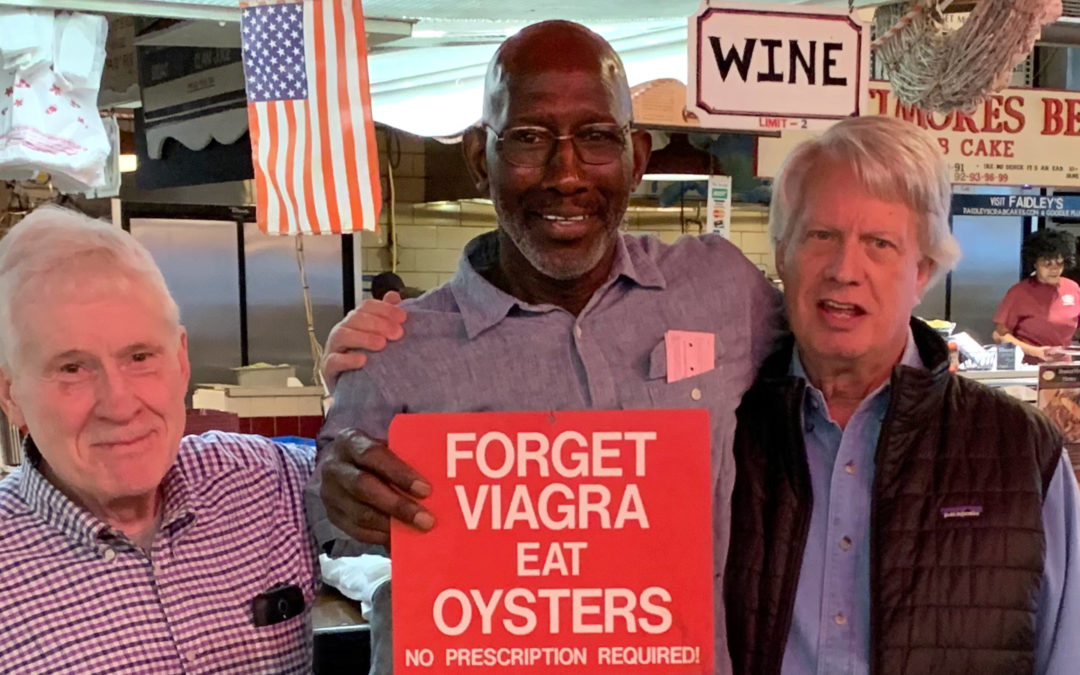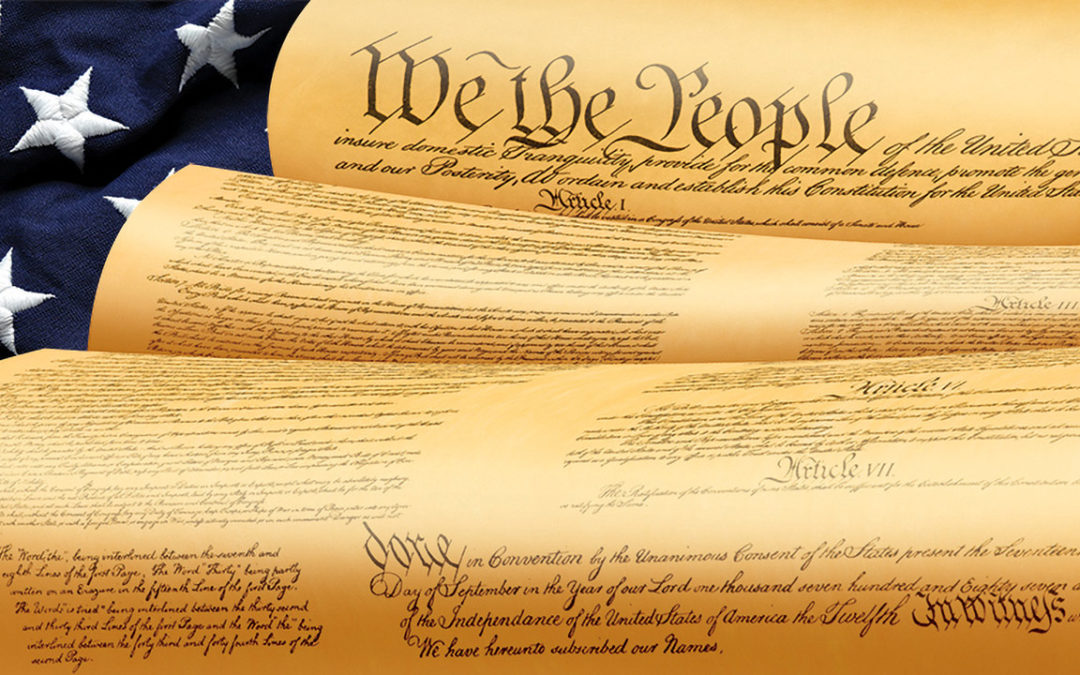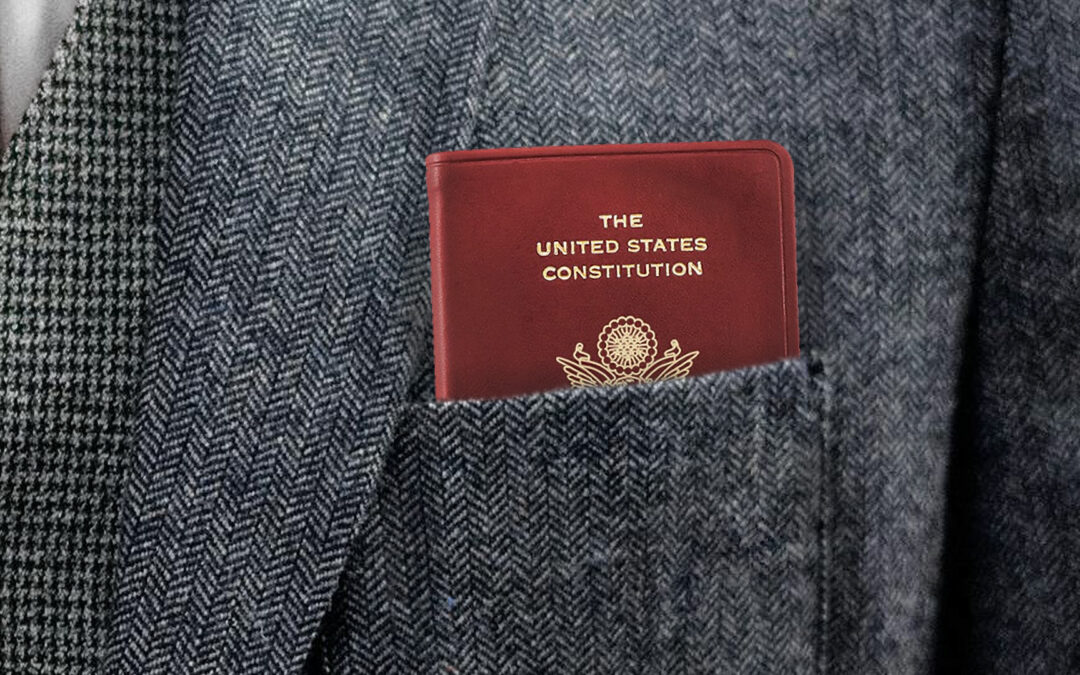
by Robert Bowie, Jr. | Jan 14, 2020 | Featured, Law
There is only one lawyer I know who will go to heaven — Mike Millemann. He recently wrote a law review article about a theater class aimed at teaching law students how to be better lawyers, which we taught together several years ago at The Carey School of Law at University of Maryland. The class was both bizarre and beautiful.
The students were tentative at first but, by the end, definitely loved it. In almost every case, the students were amazed by a third dimension this class offered to their law school education: compassion as it is embodied by our professional responsibility.
One of the students commented:
“Ten years from now, I am certain that when I am asked to share my most eye-opening class in law school, I will mention this class. It has been a learning experience that no other law school class that I have taken can come close to in comparison.”
The model for the class came from the stories of African American males incarcerated and serving life sentences in Maryland, who were later exonerated because they were determined to be completely innocent.
At the first class, one of these innocent men who had spent most of his life incarcerated under a life sentence, was introduced to the class. He quietly answered the student’s questions, remarkably without anger.
Each of these men had been through hell and had escaped it unexpectedly, and they shared that experience.
Throughout the writing and performing process, the students learned in a way that is completely different than the traditional law school education.
After going through trial transcripts, appellate briefs, the underlying facts and the law of each case, the students wrote a play. They collaborated, they wrote the roles of corrupt prosecutors under public pressure and eager for a conviction and incompetent defense lawyers who took $300 from the family of the defendant and provided only half-day trials in capital cases without prior research or exonerating witnesses. But also, the students wrote the story of the diminished hope and desperation of family members who were in shock by the verdict, and who over time grew despondent about American justice.
And then the students lived the roles which they created as they performed their play before a live audience.
In one case, Michael Austin, who had been recently released and had taught himself music during his incarceration, stayed with us throughout the class and was asked to join a class member at the side of the stage to add musical accompaniment.
In the last scene, the governor of Maryland announced publicly that Michael Austin was to be released. On stage, the student playing Michael Austin was asked: “Are you angry about what has happened to you?”
To the extreme surprise of the audience, Austin, barely noticed previously, took center stage and announced: “I am Michael Austin and I am thankful for the lawyers who accomplished my release and for the efforts of this class and this law school for telling my story.” From the surprise, came tears in the audience.
But more importantly, the class had learned what law school doesn’t teach: that a lawyer, when he or she takes the oath required to be licensed, has a greater responsibility to the society than almost everyone else. The oath is not a license to make money. It is a responsibility to “protect the Constitution” and the democracy in which we live.
The brilliant Elliot Rauh, a founding member of Single Carrot Theatre and I worked together on this class, but the suggestion and support for the project came from Professor Michael Millemann. He is going to heaven for his lifetime commitment to public justice and the unfairly incarcerated, and for this class.
Professor Michael Millemann’s article has already been accepted by one law review for publication and others are expected to express interest. When it is published, I will post where it can be read.
Featured in the photo: Michael Millemann, Michael Austin, Robert Bowie, Jr.

by Robert Bowie, Jr. | Dec 31, 2019 | Featured, Law, Politics
Regardless of how partisan things seem, Nancy Pelosi’s duties no longer run exclusively to the Democratic Party.
As Speaker of the House in an impeachment proceeding, she has a duty to every citizen of the USA to ensure that the constitutional requirements of an impeachment trial be carried out before she proceeds to the trial in the Senate. She is the lead prosecutor. She is an officer of that court.
It would be a dereliction of her duty, a violation of the Constitution, and an acquiescence to obstruction of justice to proceed with a trial knowing that the defendant is withholding witnesses and documents, and that the jury has predetermined a verdict of acquittal before the trial begins.
She must wait for the federal courts to enforce the Constitution. She must not compromise for anything less. She must put the spotlight on the head-on collision between fascist partisan politics and the clear violation of our Constitution, and have the Federal Courts confirm the Constitution and her protection of it.
The senators will take their oath “of objectivity” and for many the hypocrisy quite possibly can’t be stopped. (It might be fun if the prosecution asks Chief Justice Roberts, the judge in this case, for the right to voir dire the jury to determine if there is pre-existing bias, which should require disqualification of senators who have publicly stated that they have made up their minds and are working for the defendant.) No matter what, however, Pelosi must wait for the federal court’s rulings requiring the testimony of witnesses and production of documents.
Time is not the enemy of the country in all of this, but it is the enemy of an obstructionist defendant.
President Trump and Senator McConnell will show their hand if they lambast Pelosi for waiting for a court ruling, because they will show that the court and the delay is what they really fear.
They want to force a vote by a biased jury so they can declare victory in the President’s campaign. But if they are forced to wait, and they lose in the courts (as they will) before or even after the election, they will not be able to sweep their obstruction under the rug. It will be a historical record. It will be irrefutable.
No, time is not the enemy! Given the time and a chance to talk together, more people will have a chance to understand and get it right. Nixon was elected by every state of the union except Massachusetts. Two years later, he resigned when it became clear he was about to be impeached by a bipartisan vote.
So, in fact, time and the Federal Courts are Pelosi’s ally. The more she waits out the storm and requires that the Constitution be respected, the more President Trump and Senator McConnell will be punished for their stonewalling and other violations when the courts rule against them.
It is not about the election. It is about whether we can hold on to our Constitution and who we are as a country.
The question is: Does Pelosi have the guts to withstand the storm and represent all the people of the United States, not just the Democrats?
No guts, no glory, Nancy. Weakness won’t work. “Oh, say can you see?” We will see soon enough.

by Robert Bowie, Jr. | Nov 26, 2019 | Featured, Law, Politics
I remember when Congress actually had good manners and I almost got a chance to cite the Constitution in traffic court.
Many years ago, from within a culture of politeness, I watched the U.S. Congress impeachment proceedings of Richard Nixon. Now, 45 years later, this culture of politeness in Congress doesn’t exist, but back then it seemed to have several benefits.
I got a job in the office of Senator Charles “Mac” Mathias (R-MD) as his mail clerk. My “office” was directly behind the wall that separated me from the receptionist and everybody else.
After several months, I got a chance to demonstrate my enthusiasm. The Senator knocked on my door and told me he had a “special assignment” for me.
He told me that there was a lobbyist right on the other side of that wall who was sitting in the receptionist area. The lobbyist had just threatened to pull all of his airline clients out of BWI unless the Senator voted in favor of a bill that would be considered by the Senate that afternoon.
The senator told me to take the lobbyist to the Senate dining room and take detailed notes on what he wanted.
I straightened my tie, went through the door, and introduced myself.
After a brief moment, the lobbyist looked me over and asked me, “What exactly is your job title?”
I proudly told him, “I am the mail clerk!”
He thanked me, declined my invitation to the Senate dining room, and left.
One of the benefits of this culture of politeness was it encouraged good manners without public reprimand.
The Senator eventually took pity on me and I became his driver.
Back then, the Senate was bipartisan and the senators got along. We filled up the back seat with the likes of Kennedy from Massachusetts and Tower from Texas. We all listened to the political news in the car together on WTOP.
Despite often radically different points of view, this civility grew from a collective belief that these representatives were exercising a shared power. It made sense. This responsibility of shared power allowed a culture of compromise and progress that we have not seen since the country has been polarized.
There was a reverence on both sides for the Constitution. Mathias always had a copy in his coat pocket.
No one was immune from this culture, including me. One time as we were headed to Washington from the western part of the state, Mathias leaned over to me, turned down the radio, and said, “We can pick it up a little. You are going to law school. If we get pulled over, you will be able to cite the Constitution to the officer.” Mathias smiled as he patted his coat pocket. “It is illegal to hinder a member of Congress on the way to a vote.”
I never asked him for the chapter and the verse. I just drove a little faster. It just made sense.

by Robert Bowie, Jr. | May 7, 2019 | Featured, Law, Personal
Several years ago Professor Mike Millemann, on the left, contacted me to see if I wanted to help him fulfill a grant made to the University of Maryland Cary School of Law to teach law differently by using the theater.
We signed up Elliot Rauh, of Single Carrot Theatre and decided the class should write plays about prisoners who had been released from prison after they had been determined to be absolutely innocent after years of incarceration. One of those plays was about Michael Austin, at the center, who was imprisoned in Maryland for over 27 years for a murder he did not commit. He was freed through the brilliant legal work of Larry Nathans, Esq., of Nathans & Biddle.
Last week we got together again at Lexington Market in downtown Baltimore as a reunion of old friends to help Michael because Michael had just found out that due to a typo in his arrest record he was never exonerated and that has kept him from getting work. This will be resolved but the reunion between friends nonetheless was wonderful.
In Michael’s case, and in most of the cases that we turned into plays, the process was remarkably similar. On the first day of class we brought Michael in to meet the class and answer questions. He was calm, collected, and despite the injustice of his incarceration not angry but very wise. In prison he had perfected himself and along the way he had become quite a remarkable musician.
Throughout the following weeks of the semester, the first third of the class was used to do deep research on what went wrong and what led to his conviction. The class went through trial transcripts, records of an incompetent defense lawyer, and files of prosecutors that withheld evidence and a transcript recording of the judge that sentenced an innocent man to life in prison.
The second third of the class the students wrote the backstory, and in the third and final part of the class, Elliot Rauh taught acting and turned inexperienced law students into the actors of their own play which was performed before the law school.
Michael stayed with the class from the beginning. One of the students said that he should provide music for the play and he agreed. Another one of the students suggested that at the end of the play, Michael should leave his instruments behind and identify himself as the Michael Austin about whom the play was written. The audience gasped and some wept.
At first I thought this class might have limited value so we asked that the students provide a one minute clip to the people who had provided us the grant to state whether they thought the grant money had been used appropriately. I became convinced when one student faced the camera and said “I wrote the part of a defense lawyer who was unprepared, acted the part of the prosecutor who withheld the time card that would have exonerated him, and read the exact words 30 years ago when an innocent man was pronounced guilty by a state court judge in the circuit court of Baltimore city and sentenced to life and I have never been in a courtroom.”
At that point we were convinced that the class worked. People were learning from mistakes made before they were fatal. We taught the class for seven years and it was ranked as one of the most appreciated classes at the law school during that time.



